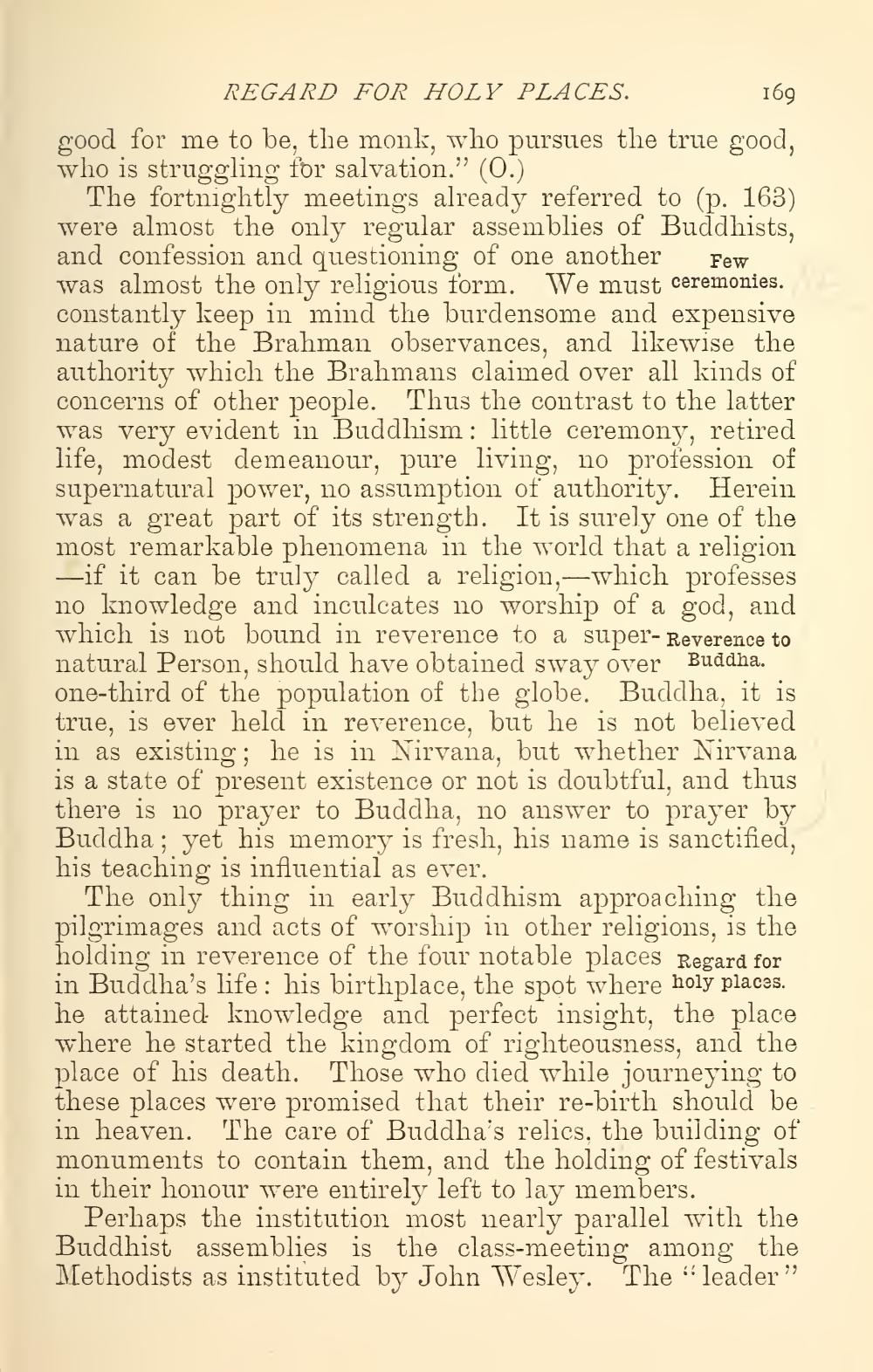________________
169
REGARD FOR HOLY PLACES. good for me to be, the monk, who pursues the true good, who is struggling for salvation." (0.)
The fortnightly meetings already referred to (p. 163) were almost the only regular assemblies of Buddhists, and confession and questioning of one another Few was almost the only religious form. We must ceremonies. constantly keep in mind the burdensome and expensive nature of the Brahman observances, and likewise the authority which the Brahmans claimed over all kinds of concerns of other people. Thus the contrast to the latter was very evident in Buddhism : little ceremony, retired life, modest demeanour, pure living, no profession of supernatural power, no assumption of authority. Herein was a great part of its strength. It is surely one of the most remarkable phenomena in the world that a religion
-if it can be truly called a religion, which professes no knowledge and inculcates no worship of a god, and which is not bound in reverence to a super-Reverence to natural Person, should have obtained sway over Buddha. one-third of the population of the globe. Buddha, it is true, is ever held in reverence, but he is not believed in as existing; he is in Nirvana, but whether Nirvana is a state of present existence or not is doubtful, and thus there is no prayer to Buddha, no answer to prayer by Buddha; yet his memory is fresh, his name is sanctified, his teaching is influential as ever.
The only thing in early Buddhism approaching the pilgrimages and acts of worship in other religions, is the holding in reverence of the four notable places Regard for in Buddha's life: his birthplace, the spot where holy places. he attained knowledge and perfect insight, the place where he started the kingdom of righteousness, and the place of his death. Those who died while journeying to these places were promised that their re-birth should be in heaven. The care of Buddha's relics, the building of monuments to contain them, and the holding of festivals in their honour were entirely left to lay members.
Perhaps the institution most nearly parallel with the Buddhist assemblies is the class-meeting among the Methodists as instituted by John Wesley. The " leader”




